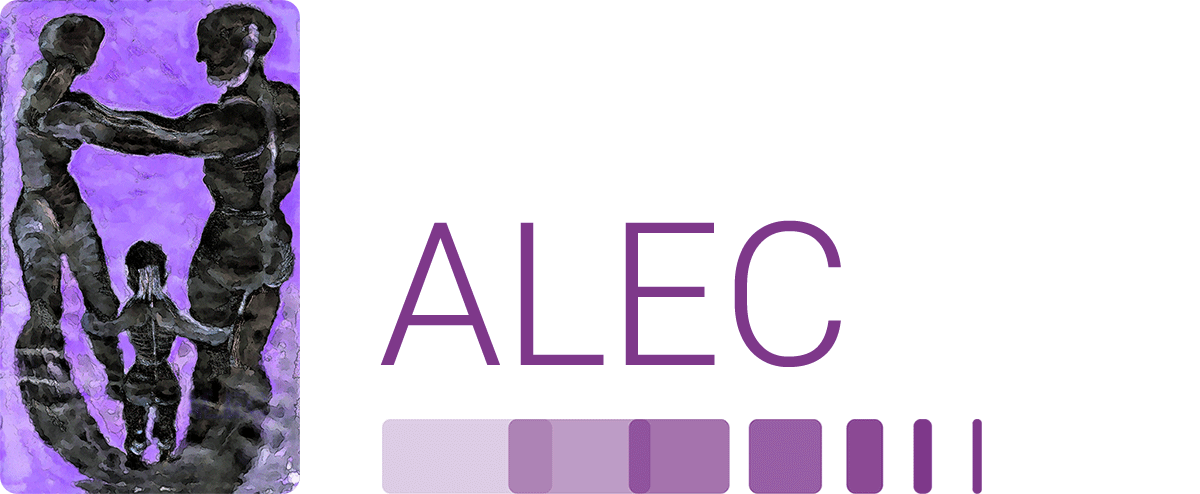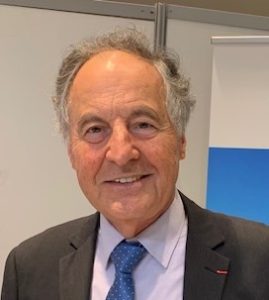Pr. Alain Franco
Alain André Franco, est Professeur honoraire de Médecine Interne, et a enseigné la gérontologie et la gériatrie ainsi que la gérontechnologie. Il a réalisé la plus grande partie de sa carrière au CHU et à la Faculté de Médecine de Grenoble où il a dirigé le Département de Gérontologie, le service d’Hospitalisation à Domicile et le Laboratoire LI2G. De 2010 à 2014, il a exercé à l’Université de Nice-Sophia Antipolis et créé en son sein l’Ecole de Gérontologie de Nice. Président de la Société Française de Gériatrie et Gérontologie,
SFGG de 2000 à 2002, il créé la Société Française de Technologie pour l’autonomie et Gérontechnologie. Il préside de 2008 à 2014 l’International Society for Gerontechnology (ISG), et participe en tant que Master aux Masterclass de Gérontechnologie de l’ISG. Sur le plan scientifique, il a organisé et présidé le 9è Congrès International Francophone de Gérontologie et Gériatrie à Nice en 2010, et le 10ème Congrès de l’ISG à Nice en 2016. Il a contribué à créer et présidé de 2009 à 2012 le Centre national de référence santé à domicile et autonomie, CNR-Santé dénommé en 2014 France Silver Eco, organisme créé à l’initiative du ministère français chargé de l’économie et de l’industrie, et à ce titre, il a animé en 2010 une mission à la demande de la Secrétaire d’Etat aux Aînés et signé le rapport « Vivre Chez Soi ». Il est nommé à la Commission Européenne en 2011 en tant que membre du Steering Committee de l’European Innovation Partnership Active and Healthy Ageing, expert en gériatrie de la Commission en 2014, et membre depuis sa création de l’Advisory Board de AAL. De 2009 à 2013, il fut Secrétaire Général et Vice Président de l’Association Internationale de Gérontologie et Gériatrie, IAGG, et à ce titre poursuit sa fonction de délégué international économique et social pour les droits humains des aînés à l’ONU, New-York et Genève. Il crée enfin et préside la World Academy for Gerontechnology (affiliée ISG) le 27 septembre 2016 à Nice. Alain Franco est Président de l’association des médecins retraités de l’Isère depuis 2016 et Chevalier de la Légion d’Honneur le 14 juillet 2006 au titre de son activité dans le domaine de la santé et du vieillissement.
Alain André Franco, born in 1944 in Grenoble, France, is Emeritus Professor of Internal Medicine, and has taught gerontology and geriatrics as well as gerontechnology. He has spent most of his career at the University Hospital and Faculty of Medicine in Grenoble, where he directed the Department of Gerontology, the Home Hospitalization Service and the LI2G, Inter-University Laboratory for Gerontology. From 2010 to 2014, he moved to the University of Nice-Sophia Antipolis. President of the French Society of Geriatrics and Gerontology, SFGG from 2000 to 2002, he created the French Society of Technology for autonomy and Gerontechnology. He Chaired the International Society for Gerontechnology (ISG) from 2008 to 2014 and participates as a Master at the ISG Gerontechnology Masterclass. He contributed to create and chaired from 2009 to 2012 the National Reference Centre for Home Health and Independence, CNR-Santé named in 2014 France Silvereco, and as such, he led in 2010 a mission at the request of the Secretary of State for Seniors, and signed the report “Vivre chez soi” or « Living At Home ». He was appointed to the European Commission in 2011 as a member of the Steering Committee of the European Innovation Partnership Active and Healthy Aging, and still a member since its creation in 2008 of AAL, the European Active and Assisted Living Association Advisory Board. From 2009 to 2013, he served as Secretary General and Vice President of the International Association of Gerontology and Geriatrics, IAGG, and as such continues his function as International Economic and Social Delegate for the Human Rights of Older Persons at the UN, Geneva. Back to Grenoble, Alain Franco serves as member of the WHO Ad-hoc Advisory Group of Experts on Assistive Technology, May 2019. He chairs a U3A, the Inter-Age University of Dauphiné (UIAD) since 2018 and founded the Living Lab Tecadom. He is Vice-Chair of the Académie Delphinale and Knight of the French Légion d’Honneur. Grenoble April 4th, 2020.
![]()
ÉCOSYSTEME TERRITORIAL DU BIEN VIEILLIR, UN OUTIL COLLECTIF ET UNIVERSEL ECONOMIQUE, SOCIAL ET SANITAIRE POUR LA MISE EN ŒUVRE DES OBJECTIFS DE DEVELOPPEMENT DURABLE DE L’AGENDA 2030 DES NATIONS UNIES
Alain Franco, Véronique Chirié, John Laffon, Malek Bouhaouala, IUAD, Grenoble (France)
L’Europe semble encourager la mise en place des écosystèmes permettant de favoriser la diffusion du Bien Vieillir et l’innovation. Le Portugal va devenir le pays le plus vieux d’Europe. Coimbra, ville où l’Université très ancienne et réputée a une place particulièrement forte et légitime sur son territoire de la Région Centre du Portugal a pu initier avec tact et talent le programme Ageing@Coimbra dont le levier fut la recherche de budgets issus de l’Europe.
A son exemple, les acteurs du bien vieillir, comme en France ceux de Grenoble et de l’Isère, peuvent ainsi se rapprocher et collaborer au sein d’un écosystème Bien Vieillir en gardant toute liberté d’initiative. Ils demandent à participer à la dynamique de l’écosystème en acceptant de contribuer à un objectif commun simplement exprimé et de promouvoir leurs bonnes pratiques.
Les objectifs stratégiques définis pourraient être :
- De s’affirmer comme un territoire européen de référence, pour un vieillissement actif et sain,
- D’encourager la création, le transfert et l’adoption de solutions innovantes favorisant un vieillissement actif, sain, autonome ou accompagné en s’adossant à des modèles présents sur le territoire et en référençant leurs bonnes pratiques,
- De sensibiliser les décideurs régionaux, nationaux et internationaux aux défis du vieillissement et au rôle de l’écosystème local
- De s’inscrire, notamment au-delà du Bien Vieillir, dans les ODD 3, 4, 9, 10.
Un plan d’actions pourrait inclure le recensement des acteurs locaux, la diffusion et la valorisation des initiatives et bonnes pratiques, la promotion de l’innovation, la communication et l’animation de l’écosystème.
Mots clés : écosystème, bien vieillir, innovation, territoires, bonnes pratiques, Agenda 2030
![]()
TERRITORIAL ECOSYSTEM OF AGEING WELL, A COLLECTIVE AND UNIVERSAL ECONOMIC, SOCIAL AND HEALTH TOOL FOR THE IMPLEMENTATION OF THE SUSTAINABLE DEVELOPMENT OBJECTIVES OF THE UNITED NATIONS 2030 AGENDA
Alain Franco, Véronique Chirié, John Laffon, Malek Bouhaouala, IUAD, Grenoble (France)
Europe seems to be encouraging the establishment of ecosystems that can promote the spread of Ageing Well and innovation. Portugal will become the oldest country in Europe. Coimbra, city where the very old and renowned University has a particularly strong and legitimate place on its territory of the Center Region of Portugal, was able to initiate with tact and talent the Ageing@Coimbra program whose leverage was the search for European budgets.
Following his example, the actors of ageing well, as in France those of Grenoble and Isère, can thus come together and collaborate within an ecosystem of ageing well while retaining all freedom of initiative. They ask to participate in the dynamics of the ecosystem by agreeing to contribute to a common objective simply expressed and to promote their good practices.
The strategic objectives defined could be:
- To assert itself as a benchmark European territory, for active and healthy ageing,
- Encourage the creation, transfer and adoption of innovative solutions promoting active, healthy, independent or assisted ageing by leaning on models present in the territory and by referencing their good practices,
- Raise awareness of regional, national and international decision-makers on the challenges of ageing and the role of the local ecosystem
- To subscribe, in particular beyond Ageing Well, in SDGs 3, 4, 9, 10.
An action plan could include the identification of local actors, the dissemination and promotion of initiatives and good practices, the promotion of innovation, communication and animation of the ecosystem.
Keywords: ecosystem, aging well, innovation, territories, good practices, 2030 Agenda.

